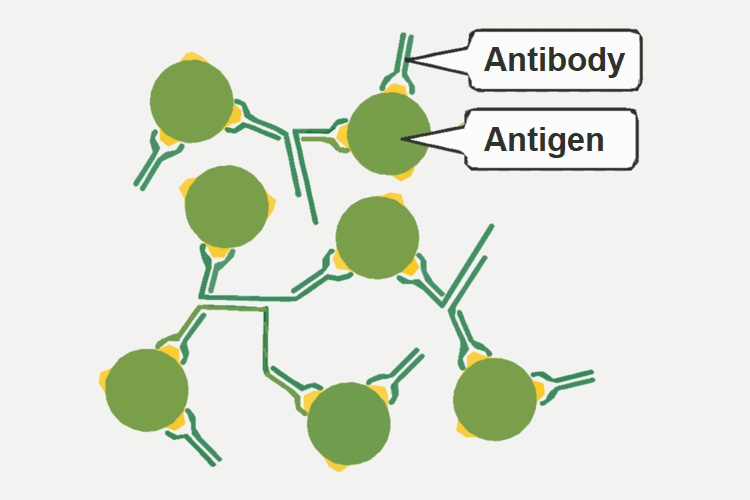I have seen a lot of times people get confused between antigen and antibody. When I asked few people about it, they looked quite confused and literally mixed the two terms. Additionally, sometimes the language of textbooks might lead to confusion. Therefore, this blog covers the differences between antigen and antibody in a simple and understanding manner. So, let’s get started.
To begin with, let’s clear some basics first…
Here are some cool facts that might help you to understand antigens and antibody easily:
- Antigens and antibodies play important and distinct roles in diseases and sickness.
- One comes with havoc on our health meanwhile the other one fights for our protection.
- Antigens make us sick.
- Antibodies defend our bodies from antigens.
Now, let’s understand what are antigens and antibodies…
What is an antigen?
An antigen is any organism or substance which our immune system cannot recognize. An antigen could be any form of substance like bacteria, viruses, bacteria, or food particles. Antigen basically disrupts the working pattern of our immune system or responses. This process may also consist of an antibody. Such formations are known or classified on the basis of their origins:
Exogenous
Exogenous are those organisms or particles that enter from outside in the body.
Endogenous
Endogenous are those organisms or particles that are generated within the body.
Autoantigens
Autoantigens are basically proteins that are targeted in our autoimmune system.
Neoantigens
Neoantigens are also named tumor antigens that are resulted from tumor cells.
Native antigens
Native antigens are those particles or organisms that will be processed later by an antigen-presenting cell in our body.
The presence of any kind of antigens fights with our white blood cells (lymphocytes or illness-fighting cells). Such presence of antigens causes white blood cells to convert into antibodies. Such formed antibodies later fight against the antigens to save our body from illness. Basically, there are two main types of antigens:
Heteroantigens
Heteroantigens are referred to such substances that came from outside (foreign body) in our body and involved with substances that found within and they can be:
- Bacteria
- Blood and red blood cells (obtained from other people)
- Snake venom
- Viruses
- Allergens (example: pollen)
- Certain types of proteins found in food
Autoantigens
Autoantigens are also named as self-antigens that are created by our body for fighting with our cells and usually they denote signs of sickness like an autoimmune condition.
What is an antibody?
Antibodies are also named as immunoglobulin or Ig. Antibodies are proteins that are Y-shaped and created by our immune system’s B cells or B lymphocytes. The role of B lymphocytes is to eliminate the viruses and other toxins present outside the cell. To perform this action, antibodies start making specific antibodies that are designated for a single type of antigens.
These modified antibodies keep an eye on their antigens and keep on tagging them for the attack. Additionally, antibodies also help in blocking these sickness-causing antigens; they keep them away from our healthy cells. Incredibly, they stop the infection by killing such problematic antigens. The main kinds of antibodies or Ig are:
IgG
IgG is the most huge type of antibody present in our plasma. The motive of IgG is the detoxification of harmful substances and providing long-term safety from antigens.
IgM
IgM is the first antibody created by B cells in order to respond to antigens.
IgA
IgA type of antibodies is formed for the collection of antigens and removal of antigens from our body, our mucus, or other body fluids.
IgE
IgE type of antibodies triggers allergies and work in order to protect our body from parasites. A small number of allergies and parasites are present in the skin, mucosal membranes, and lungs.
IgD
IgD type of antibodies works together for the binding of B cells and channel them for the release of IgM antibodies.
All types of antibodies work as a guardian to protect our body from antigens. There are various types of antibodies that are found in our body and they plan an important role in defense against illness and disease.

Differences between Antigen and Antibody
Antigen | Antibody |
| Antigens make us sick | Antibodies fight antigens to protect us from illness and diseases. |
| Antigens are substances or any form of particle that induces an immune response. | Antibodies are proteins that bind with antigens and fight against them. |
| Antigens can be formed within the body or can also enter our body externally. | Antibodies are found within our body |
| The binding site of Antigens is Epitope | The binding site of Antibodies is Paratope. |
| These are molecules that are circled shaped. | Antibodies are Y-shaped |
Role of Antigens & Antibodies in Vaccinations
Ever thought about how do vaccines work? It’s quite simple; vaccines are designed in such a way that imitates antigens. It certainly triggers infection without any illness or disorder. It works in a way if any time infections again enter our body; the vaccine mimics its working and protects our body from getting the infection or illness.
Vaccines comprised of inactive or weakened parts of antigens that come from viral or infections like flu. Whenever a vaccine is inserted into someone’s body, it interacts with B cells for making targeted antibodies so that the vaccine can fight against the specific type of infection.
Moreover, newly created vaccines are included with genetic blueprints to make antigens instead of making use of actual components of antigens, however, their work is pretty similar.
If I talk more about vaccines to understand the difference between antigens and antibodies, vaccines increase the counts of antibodies present in our body to fight against a specific type of antigen. Whenever we receive the dose of the vaccine, our B cells get activated as if any naturally occurred antigen attacked our body. Later, when B-cells come in response to the inserted vaccine it reproduces and forms a huge army of cells which are basically programmed for reacting towards the antigen available in the vaccine.
Antibodies that are created by the vaccine get available dormant in our body until and unless our body makes contact with an infection. Whenever our body comes in action with the antigen, the antibodies get activated for the action.
If in case our body comes in contact with any kind of infection, antibodies named B cells instantly reproduce, create an army, and fight against the antigen.
The memory response of B-cells is referred to as secondary immune response and its quite fast and effective than any type of reaction in our body.
Conclusion
Antigens trigger our immune system for launching any kind of antibody response. Therefore, specific antibodies prepare themselves for detecting specific antigens. This means antibodies are designed in such a way that each one targets antigen. Overall, they bind antigens and then neutralize them.
That’s all folks…here we are done with explaining differences in antigens and antibodies. I hope this blog helps you to understand the differences between Antigen and Antibody.
Thanks for reading!



